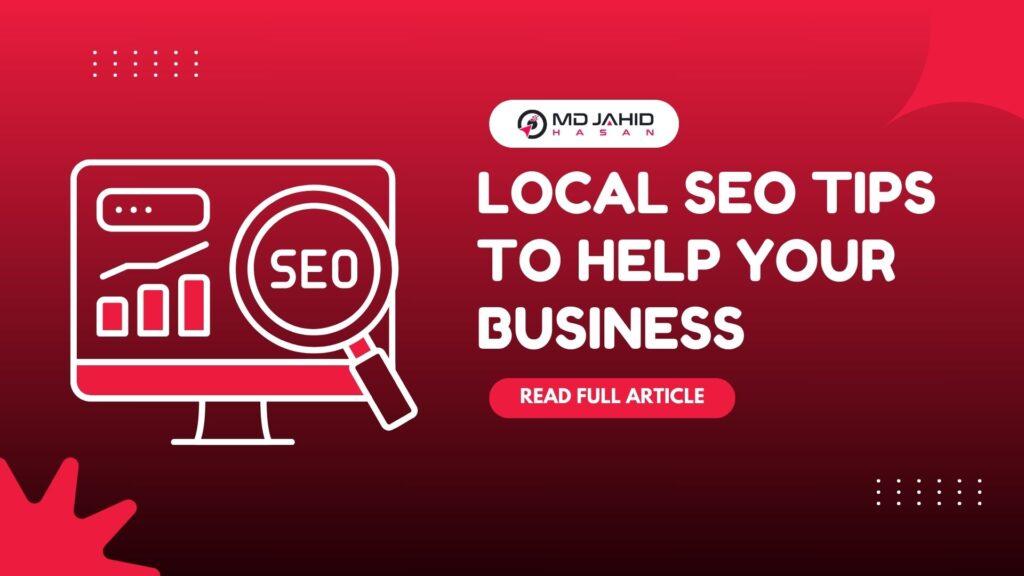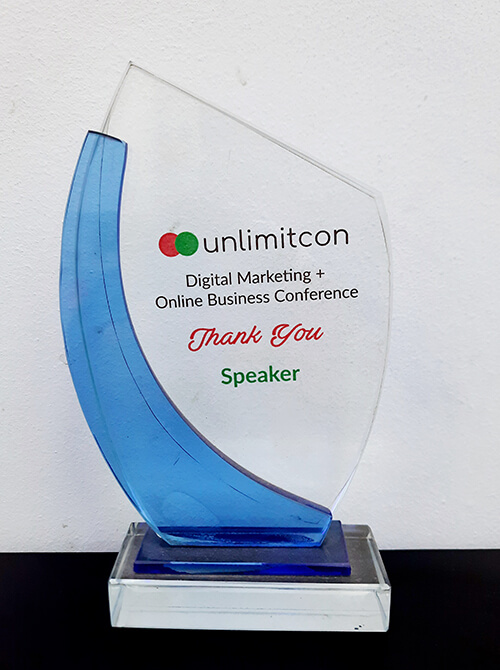SEO Tips for Small Businesses
In today’s competitive digital world, small businesses need more than just a great product or service—they need visibility. SEO tips for small businesses can be the secret weapon to unlock powerful growth and outshine competitors. If you’re a small business owner wondering what is SEO and how it works, this blog is your guide to smart, effective, and scalable strategies.
Md Jahid Hasan, an experienced SEO expert in Bangladesh, shares valuable insights to help small businesses dominate online.
📞 Call WhatsApp: +8801821207679
🌐 Visit: https://mdjahidhasan.com/consultancy/
What is SEO and How It Works?
Let’s start with the basics. What is SEO?
SEO (Search Engine Optimization) is the practice of optimizing your website to improve its visibility on search engines like Google. When done right, SEO drives organic (unpaid) traffic to your site, helping potential customers discover your business.
How does SEO work?
It works by aligning your website’s content, structure, and authority with search engine algorithms. These algorithms rank websites based on relevance, quality, and user experience. Using the right keywords, creating valuable content, and earning backlinks can help you climb higher on search engine results pages (SERPs).
Why SEO Matters for Small Businesses
Small businesses often rely on local customers. And where do people turn when they need a service or product? Google! That’s why Google SEO for small businesses is essential. With the right techniques, you can compete with bigger brands—even with a smaller budget.
Here’s why:
- Increased Visibility: Ranking on the first page of Google boosts brand recognition.
- More Traffic: Higher visibility leads to more website visits and potential sales.
- Cost-Effective Marketing: SEO is cheaper and more sustainable than paid ads.
- Local Discovery: Local SEO helps nearby customers find you easily.
Best SEO Tips for Small Businesses
Let’s break down the top Best SEO tips for small businesses that actually work:
1. Optimize Your Website for Local Search Engines
Claim and optimize your Google My Business listing. Add accurate contact info, business hours, and photos. Encourage satisfied customers to leave reviews. Local keywords like “best SEO service in Bangladesh” “Best SEO company in Bangladesh”, “Best local SEO in Dallas”, “Best Local seo in Dallas” ”Best Roofing Company Across Ohio” ”Dallas Photo Booth Rental Company” help Google connect you with nearby searchers.
2. Use the Right Keywords
Understand what your audience is searching for. Use tools like Google Keyword Planner or Ubersuggest to find keywords like:
- SEO tips for small businesses.
- How to do SEO for a website step-by-step.
- SEO for business growth.
Tools like Google Keyword Planner, Ubersuggest, and Ahrefs can help find relevant terms.
3. Create Quality, Relevant Content
Write informative blog posts, FAQs, and guides that answer your audience’s questions. Content should be original, useful, and include bold keywords for internal and external links. Blogging regularly helps Google index your website more often. For example:
- “What is SEO and how it works”
- “How to do SEO for website step-by-step”
4. Focus on Local SEO
Target keywords with location, such as:
- “Best SEO services in Ohio”
- “Local SEO expert near me”
5. Mobile Optimization
Over 60% of users access websites via mobile. Ensure your site is mobile-friendly and fast-loading. Google prioritizes mobile-first indexing, so a slow or poorly designed mobile site can hurt your rankings.
6. Build Backlinks
Backlinks (links from other websites to yours) are a strong trust signal. Reach out to local blogs, directories, or partner businesses to get listed or guest posts. Always link back with bold keywords like Local SEO tips for small businesses. You can:
- Write guest posts.
- Get listed in business directories.
- Collaborate with influencers.
7. Improve On-Page SEO
Include your primary keywords in the:
- Title tags.
- Meta descriptions.
- Header tags (H1, H2, H3).
- Image alt texts.
- URL structures.
Also, use internal linking to guide readers to other relevant on-page pages on your site.
How to Do SEO for a Website Step-by-Step
Here’s a simple breakdown of how to do SEO for a website step-by-step:
- Website Audit – Check for technical issues and errors.
- Conduct Keyword Research: Identify target keywords using SEO tools.
- On-Page SEO – Optimize titles, meta descriptions, headings, and content.
- Optimize Website Structure: Ensure clean URLs, responsive design, and fast load speed.
- Publish Optimized Content: Write blogs using your target keywords naturally.
- Set Up Google Search Console & Analytics: Monitor site performance and crawl issues.
- Build Backlinks: Reach out to industry blogs, directories, and influencers.
- Regularly Update Your Content: Keep your website fresh and relevant.
- Local SEO – Claim your Google Business Profile and get local citations.
- Monitoring and Updates – Use analytics tools to refine your strategy regularly.
SEO for Business Growth
SEO is not a one-time task—it’s a long-term strategy that fuels business growth. Here’s how it helps:
- Builds Trust and Authority: High-ranking pages are perceived as more credible.
- Increases Conversions: SEO brings in warm leads actively searching for your services.
- Supports Other Marketing Efforts: Great SEO boosts PPC, social media, and email marketing by driving traffic and increasing brand awareness.
FAQs about SEO for Small Businesses
Q1: What is SEO, and why is it important for small businesses?
A: SEO helps your website rank higher on search engines. For small businesses, it’s a cost-effective way to attract local and global traffic, build trust, and increase sales.
Q1: How long does it take to see SEO results?
A: SEO is a long-term strategy. You may start seeing results in 3 to 6 months, depending on your industry and competition.
Q2: Can I do SEO myself or should I hire an expert?
A: Basic SEO can be done by yourself using guides and tools. However, hiring an expert like Md Jahid Hasan can save time and deliver faster results.
03. What are some common SEO mistakes small businesses make?
- Ignoring mobile optimization.
- Keyword stuffing.
- Not updating content regularly.
- Skipping technical SEO.
- Not using analytics.
Q3: What’s the cost of SEO for small businesses?
A: Costs vary by region and provider, but SEO offers great ROI compared to traditional ads.
Q4: Is content more important than backlinks?
A: Both are essential. High-quality content attracts and engages users, while backlinks boost your site’s authority.
Conclusion
For small businesses striving to stand out online, Local SEO is a game-changer. With the right strategies, tools, and guidance, you can boost traffic, grow revenue, and build a strong digital brand.
Need expert help to grow your small business online?
📞 Call WhatsApp: +8801821207679
🌐 Visit: www.mdjahidhasan.com
Start implementing these Local SEO tips for small businesses today—and watch your online presence soar!










